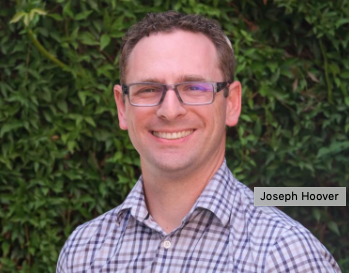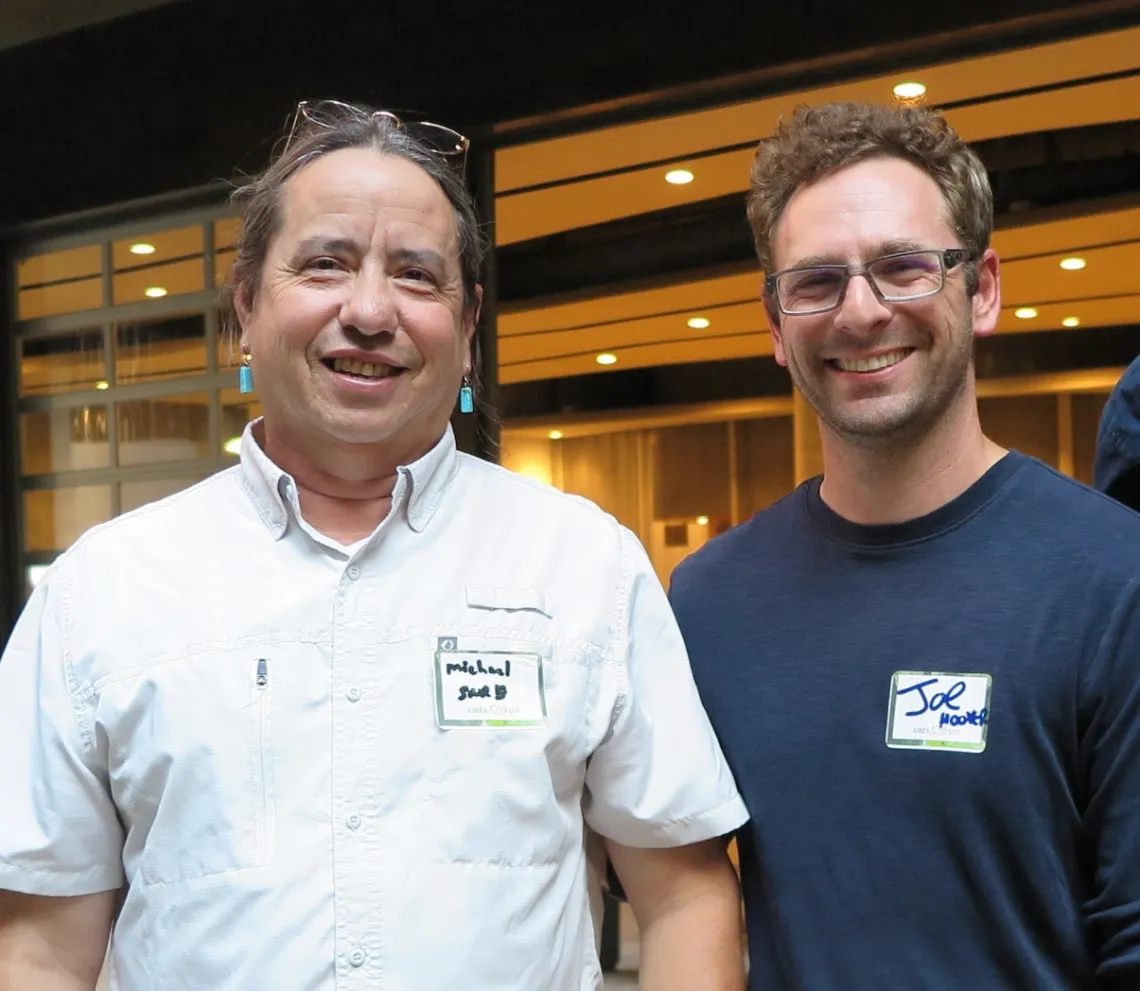Together, we can and must do more. We also can and must do more together.
The two new full-time faculty associate hirings, supported by the Haury Program, the Strategic Priorities Faculty Initiative (SPFI), and the Senior Vice President for Academic Affairs and Provost office, bring distinctive strengths to the Indigenous Resilience Center (IRes) team led by Dr. Karletta Chief.  Dr. Michael Kotutkwa Johnson, a member of the Hopi Tribe in Northern Arizona, holds a Ph.D. in Natural Resources from the University of Arizona, a Master of Public Policy from Pepperdine University, and a B.S. in Agriculture from Cornell University. Dr. Johnson is an Assistant Specialist at the School of Natural Resources and the Environment working with Native American tribes concerning natural resource policy and management challenges. He also bridges the communication gap between the federal and state governments, NGOs, and the Private Sector. Dr. Johnson continues to practice Hopi dry-farming, a practice of his people for millennia and has published in academic journals on topics including Indigenous conservation, land stewardship, and ecosystem services. Dr. Michael Kotutkwa Johnson, a member of the Hopi Tribe in Northern Arizona, holds a Ph.D. in Natural Resources from the University of Arizona, a Master of Public Policy from Pepperdine University, and a B.S. in Agriculture from Cornell University. Dr. Johnson is an Assistant Specialist at the School of Natural Resources and the Environment working with Native American tribes concerning natural resource policy and management challenges. He also bridges the communication gap between the federal and state governments, NGOs, and the Private Sector. Dr. Johnson continues to practice Hopi dry-farming, a practice of his people for millennia and has published in academic journals on topics including Indigenous conservation, land stewardship, and ecosystem services.
Dr. Johnson decided to join the University of Arizona for the opportunity to help build out the Indigenous Resilience Center and renew the connections he established at the university while doing his Ph.D. Dr. Johnson's research focuses on traditional Indigenous agriculture and ways of knowing. "It's the combination of what Indigenous people know regarding the environment and their communities with some of the benefits of western science such as solar and hydro panels," mentioned Dr. Johnson. Dr. Johnson envisions the work of IRes within the university as collaborative and interdisciplinary, with the primary goal of helping resolve some of the challenges faced by tribes. "IRes' work with tribes and our relationship to tribal engagement can't be done without establishing meaningful relationships first and addressing some of the needs of the tribes, but only based on their decisions." Dr. Johnson is the co-author of the Tribal Chapter in the National Climate Assessment Five. His newest initiative is the call for the Restoration of the American Indian Food System based on the stewardship principles of Indigenous conservation and land use management schemes. Dr. Johnson invites students, faculty, and staff members interested in partnering with IRes to "come with an open mind and a willingness to listen. Be part of the solution by bringing your own ideas and asking questions. IRes is not just a "one-stop shop" but rather a continuation of making a difference."  Dr. Joseph Hoover is an Assistant Professor in the UArizona Department of Environmental Science. He also co-directs the NIH-funded Center for Native Environmental Health Equity Research at the University of New Mexico. Dr. Hoover's line of research is at the intersection of water, environment, and health. He uses community-engaged practices to co-develop research projects that are sustainable over the long term. Dr. Hoover's goal is to work with community partners to identify, design, implement, and interpret investigations that address community concerns. Dr. Joseph Hoover is an Assistant Professor in the UArizona Department of Environmental Science. He also co-directs the NIH-funded Center for Native Environmental Health Equity Research at the University of New Mexico. Dr. Hoover's line of research is at the intersection of water, environment, and health. He uses community-engaged practices to co-develop research projects that are sustainable over the long term. Dr. Hoover's goal is to work with community partners to identify, design, implement, and interpret investigations that address community concerns.
Dr. Hoover's work centers on drinking-water-related challenges, including groundwater quality and water insecurity. Some of his current projects include environmental health disparities associated with metals from abandoned mine waste and microplastics and other chemicals from open dumping of solid waste. "My training in geography," commented Dr. Hoover, "has provided me with a strong foundation in geospatial tools and methods. Mapping and spatial analysis are core components of most of my work. These tools have helped me inform community-designed environmental monitoring plans to investigate chemical occurrences in soil, water, and air." When Dr. Chief invited him to join IRes, Dr. Hoover was humbled and excited to return to the institution that played a pivotal role in shaping his career path. Dr. Hoover said the faculty and students he met during his time in Tucson influenced his decision to pursue a Ph.D. and focus his research on issues important to Indigenous communities. "I'm looking forward to developing new relationships with communities, faculty, staff, and students to achieve Indigenous resilience." For Dr. Hoover, IRes represents an opportunity for him to keep working with Native Nations throughout the US western and for the university to grow research, outreach, and service focused on Indigenous communities' needs. "I firmly believe that community-based research starts with a strong relationship with community partners. The time it takes to develop those relationships will enable us to refine how we implement activities to achieve the IRes mission," said Dr. Hoover. Dr. Hoover encourages students, faculty, and staff interested in joining forces to introduce themselves to one of the IRes faculty, staff, or students. "Our experiences and interests are wide-ranging but grounded in a common goal of achieving Indigenous resilience. I'm always interested in learning about the work others are conducting and finding opportunities to work with community partners to address challenges."
Contact IRes’ leads here. 
|





